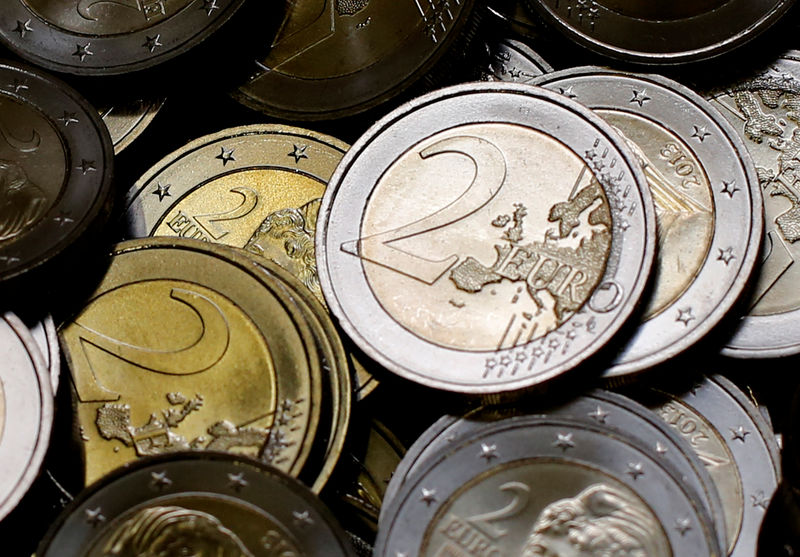By Philip Blenkinsop
BRUSSELS (Reuters) - Euro zone inflation edged higher in line with expectations in February as food and energy price rises accelerated, but there was no matching increase to the core rate that the European Central Bank's closely watches.
The European Union's statistics agency Eurostat estimated on Friday that prices in the 19-country currency bloc rose 1.5 percent in February, from the 1.4 percent reported for January.
The figure was in line with the average expectation of economists in a Reuters poll.
The increase brings headline inflation nearer to, but still some way off the ECB's target of below, but close to 2.0 percent.
The core indicator that plays a key role in the ECB's monetary policy decisions, and which excludes volatile energy and unprocessed food prices, was unchanged at 1.2 percent in February, above expectations of a fall to 1.1 percent.
A narrower indicator, which excludes energy, food, alcohol and tobacco and on which economists often focus, dipped to 1.0 percent, against expectations of an unchanged 1.1 percent reading.
Headline inflation increased mostly because of energy prices, which rose 3.5 percent year-on-year in February, after a 2.7 percent increase reported for January.
Unprocessed food prices were also 2.9 percent higher than a year earlier, far greater than the 1.8 percent increase in January.
Eurostat's flash estimate for the month does not include a monthly calculation.
In a separate release, Eurostat also reported that the unemployment rate in the euro zone was 7.8 percent in January, unchanged from a revised figure a month earlier, although there were 23,000 fewer people unemployed than in December.

The 7.8 percent reading was the lowest since October 2008. December's number had previously been estimated at 7.9 percent.